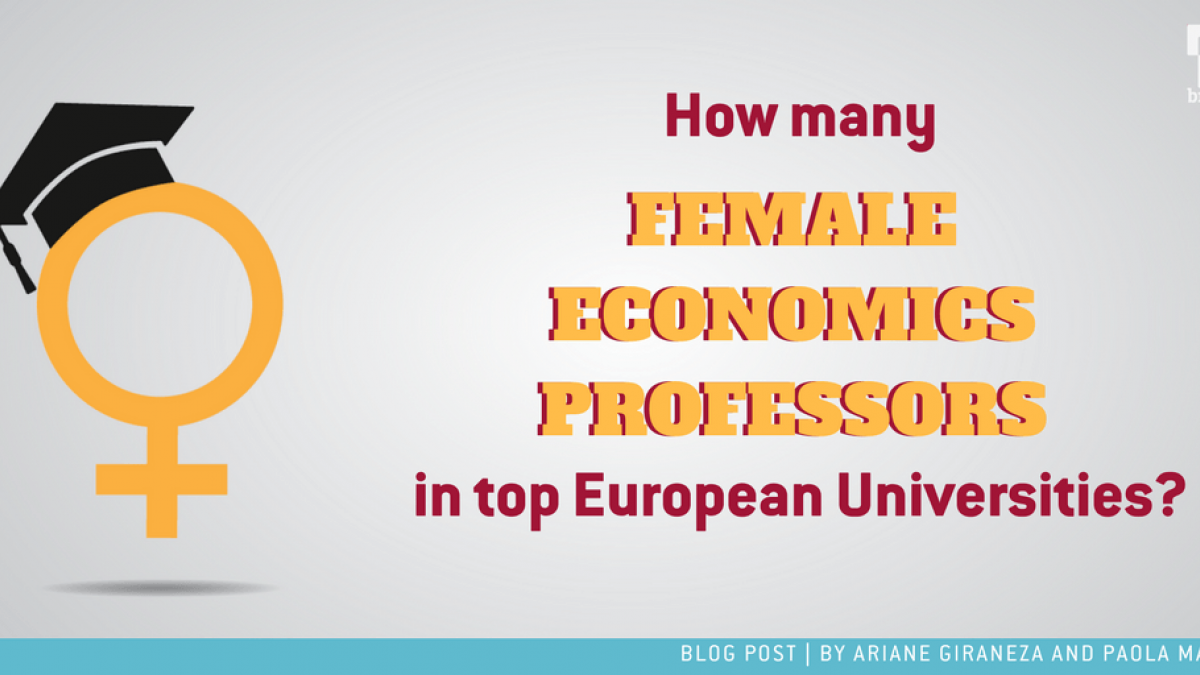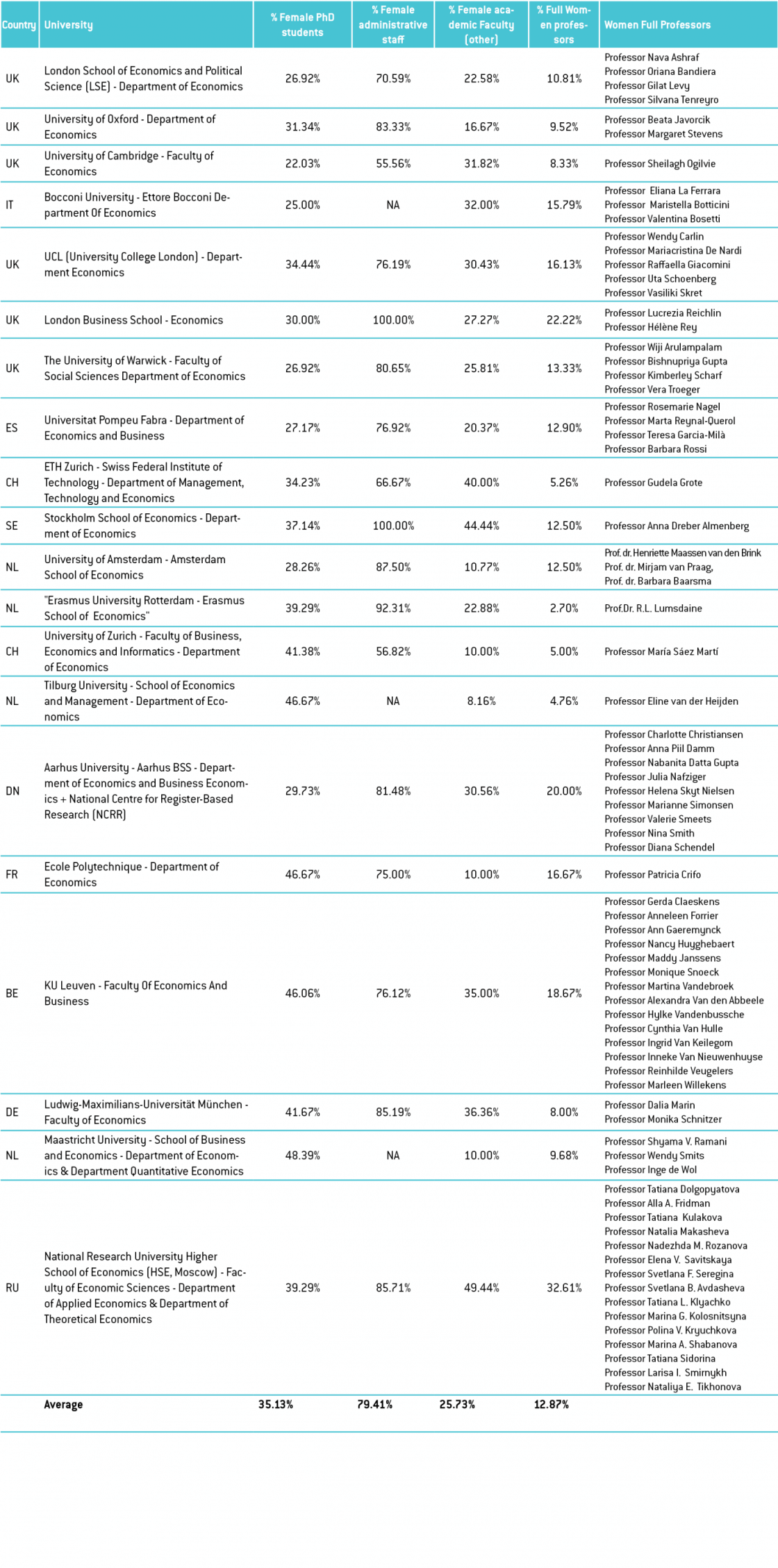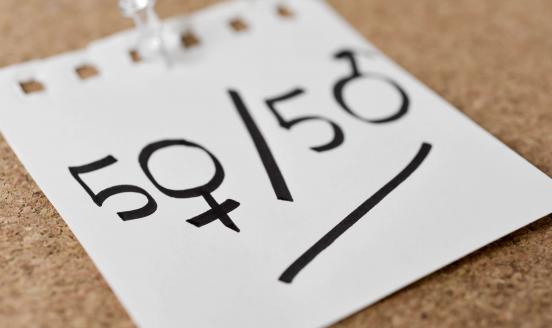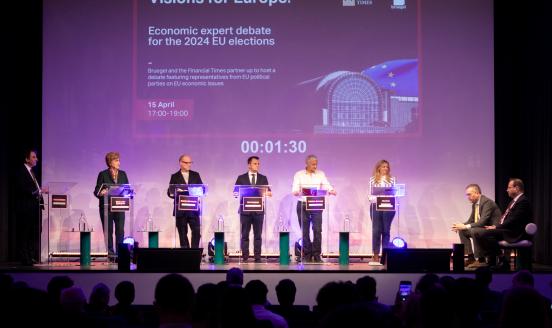How many female economics professors in top European Universities?
A look at the representation of women in academia at the top economic faculties in Europe shows that there is still much progress to be made by these

The issue of gender balance in economics has received enormous traction recently. As an economic think-tank, Bruegel is not left untouched. We value the issue enormously and we struggle to find the right female economists to contribute to our workings. But we discover that despite the great female underrepresentation in economics, we can make, and have made, important progress in this direction. This requires us to make an effort to actually look more systematically in the pool of who is available.
As part of these efforts, last April we investigated how many women actually have full professorships at top university economics departments in Europe. To do so, we used the QS World University Rankings, ranked by subject ‘Economics’, which was released by the topuniversities.com website early in February 2017. A similar analysis was done by The Economist a few months later, looking at female representation in the academic economic field in Europe and the US. We took the top 20 European universities in the subject ‘Economics & Econometrics’ and checked how many women were full professors in the respective economics departments.
However, it seemed equally important to check the portion of all other academic staff who are not full professors – assistant-professors, associate-professors, senior/junior lecturers, readers and researchers – as well as the portion of female PhD graduates. This gives us greater context on how gender is represented in the entire career path towards full professorship in economic faculties. We then contacted the respective economics departments to confirm the data.
The average percentage of female PhD students at the top 20 European economic departments is 35.13%. Nevertheless this is below the 47% average for all fields of study in the EU28 reported by She Figures[1] (a study on gender and research and innovation issued by the European Commission every three years) for female PhD graduates in 2012 in all fields.
The portion of women in the overall academic staff (non-full professors) is slightly lower, with 25.86% being female, while the portion of women that work as administrative staff in the top 20 economics departments is 79.41%. Men within the admin staff mostly work in ICT, while women tend to undertake the work that has to do with communications or project-management. As we go higher up in academic ranks, the portion of women goes from one third at PhD level to only one eighth at professor level. Female full professors represent only 12.87% of full professors on average.
These figures reflect results similar to several extensive studies on economics faculties, such as the one conducted in the United States by the American Economic Association, which found that only 23.5% of tenured and tenure-track faculty staff in economics are women. By rank, women represent 15% of full professors in economics departments and 31% of economics faculty staff at the assistant level. Bayer and Rouse (2016) go further in their analysis, looking at the level of minority academic economists; they find that there are only 6.3% of tenured and tenure-track economists identified as African American or Hispanic, compared to about 30% of the overall US population. Other studies show how the gender gaps in tenure and promotion rates in economic faculty are greater than those in the social sciences overall, with Ginther and Kahn (2014) noting the existence of a 20% gender gap in achieving tenure.
Understanding the reasons behind these numbers is the first step to addressing the imbalance. Diane Coyle recently stated in the FT, that the lack of role models can be considered as a contributing factor to the low percentage of women willing to start an academic career in economics. The more visible that female economists are, the more women will see economics as a realistic, profitable, attractive and achievable career path. There is still a lot to be done.
[1] She Figures 2015, page 22 https://ec.europa.eu/research/swafs/pdf/pub_gender_equality/she_figures_2015-final.pdf#view=fit&pagemode=none
Table: Women Professors in Economics. QS Ranking top 20 European faculties Economics & Econometrics

Data collected in March/April 2017



